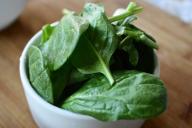Yellow is a very bright and intense color - it's a color of sun, energy, optimism, and even happiness.
Meanwhile, yellow can simply be too much - especially when you don't know how to use it wisely in your interior.
Here are some tips on how to use it well without overdoing it.
Accent Color
Yellow is strong, so it's often best as an accent color. Use it for things like throw pillows, artwork, or small furniture pieces.
Balance with Neutrals
Pair yellow with neutral colors like white, gray, or beige. This balances the bright yellow and keeps your space from feeling too intense.

Natural Light
Yellow works well in rooms with plenty of natural light. It can make the space feel warm and inviting.
Room Size
In smaller rooms, use yellow sparingly. Too much can make the room feel cramped. In larger spaces, you can use more yellow.
Tone Matters
Different shades of yellow create different moods. Bright yellow is cheerful, while soft pastel yellow is calming. Choose the tone that suits your space's vibe.
Furniture and Accessories
Yellow can look great on furniture, like chairs or cabinets, but don't overdo it. Balance it with other colors.
Personal Taste
Consider your own preferences. If you love yellow, you can use it more boldly. If you're not sure, start with small accents and see how you like it.
Test Samples
Before committing to a big yellow change, test paint or fabric samples in your space to see how they look in different lighting.
Conclusion
If you love bright yellow, then use just a bit of it - that's how you can add accents without overloading your interior.
Meanwhile, less saturated shades of yellow can be not that intense, so you can use them freely.









